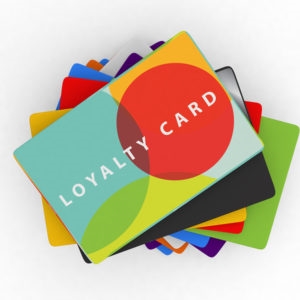Ecommerce professionals used to talk about the Internet creating a “level playing field” for businesses of all shapes and sizes to compete on, but now that virtually everyone sells online, that playing field is looking increasingly waterlogged, making it incredibly difficult to find a competitive advantage.
In order to stand out from the crowd, online retailers need to differentiate themselves from their competitors and demonstrate they have the competitive edge to win new business.
Seven Strategies to Optimize Your Competitive Edge
- Pricing: The cheapest deal doesn’t always win the day. Let your competitors bankrupt themselves with their overly aggressive “race to the bottom” pricing strategies. Sometimes the cost of selling products cheaply (increased warehousing, logistics, customer service costs, etc.) outweighs the benefits, so don’t be a busy fool and instead focus on your profit margins rather than your turnover. Instead of reducing pricing, try to increase value. Package complementary products together or offer added-value services like insurance, support, free returns, etc.
- Shipping: Everyone offers free shipping as standard. Try to be a little different by offering more flexible solutions, such as same-day delivery, click and collect, or preferred delivery schedules. Remember, 50% of online shopping carts are abandoned due to lack of shipping options.
- Buy Well: If you focus on buying the best products at the best prices, your profits will look after themselves. If the day-to-day running of your business gets in the way of your buying process, consider outsourcing activities that can be more efficiently handled by someone else. Because you don’t make money stacking shelves or stuffing envelopes, outsourcing your warehousing and logistics operations can help you focus your efforts on creating a more efficient and competitive business and is definitely worth considering.
- Content: Don’t just rely on the standard texts supplied by manufacturers to sell your products. Invest in descriptive, persuasive sales content and other conversion enhancers like customer reviews, enhanced images, video, etc. Technical specifications are great, but when selling more complex products, demonstrating the capabilities of a product and showing how it can be used is much more useful.
- Customer Services: Go out of your way to respond to customer inquiries and complaints in a timely and professional manner. Good customer service is not something that can be fully automated. Put real people on the phone, email and social media, and you’ll humanize your business and make it much more “likeable.” When your customers “like” you, they will not only become more loyal, they will also act as virtual (unpaid) ambassadors promoting your business to their friends and family. In this social age, word of mouth can be an incredible income generator.
- Own Brand Products: It’s hard to compete against a company when nobody else has access to the brands they sell. Sourcing your own “white label” products and creating your own brands can be an incredibly effective way to own a niche.
- Email Marketing: Acquiring new customers is expensive, and with so much choice, customer loyalty is often hard won. Email marketing provides a cost-effective, highly targeted solution to win customer loyalty and drive recurring revenues. If you’re not optimizing your email activities according to best practices, you will find it incredibly difficult to remain competitive in an extremely crowded market.
How do you make your business stand out in a crowded market? Share your comments and suggestions below:
This post first appeared on the iContact Email Marketing Blog.
Digital & Social Articles on Business 2 Community(24)
Report Post



